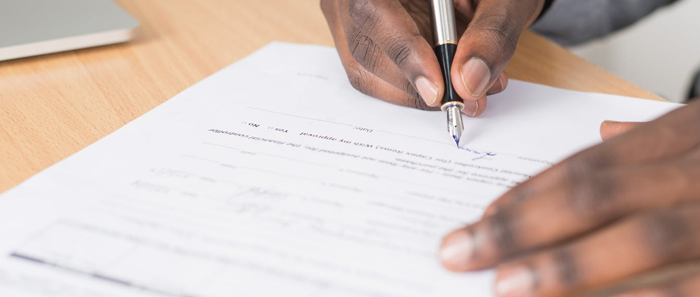Private Pensions
Have your private pension reviewed by our Pension Experts, regulated by the Financial Conduct Authority.
Call today to arrange your FREE consultation with one of our Private Pensions Experts.
Questions you may have about your pensions
- Are private pensions safe?
Private pensions are generally safe when managed by reputable providers and regulated by authorities such as the Financial Conduct Authority (FCA) in the UK. However, the value can fluctuate based on investment performance, so it's important to monitor your plan regularly.
- Are private pensions taxed?
Yes, private pensions are subject to tax. When you start withdrawing from your pension, the income is usually taxed as regular income. It's important to plan your withdrawals to manage your tax liability effectively.
- Are private pensions worth it?
Private pensions can be a valuable part of retirement planning, offering tax advantages and potential growth through investments. They can provide a significant income in retirement, complementing state pensions and other savings.
- Are private pensions protected in the UK?
In the UK, private pensions are protected by the Pension Protection Fund (PPF) which provides compensation if a defined benefit pension scheme goes bust. Defined contribution schemes have different protections, including regulatory oversight by the FCA.
- Are private pensions taxed at source?
Private pension contributions typically receive tax relief at source, meaning contributions are made from your pre-tax income. However, withdrawals from your pension are taxed as income.
- Are private pensions index-linked?
Some private pensions offer index-linked options, meaning your pension income can increase with inflation. This helps maintain your purchasing power over time. Check with your provider if this option is available.
- Are private pensions part of an estate?
Private pensions are generally not considered part of your estate for inheritance tax purposes. However, beneficiaries may still need to pay income tax on withdrawals they receive from inherited pensions.
- Are private pensions taxed at source in the UK?
In the UK, private pension contributions receive tax relief at source. This means contributions are made from your gross income, reducing your taxable income. However, withdrawals are taxed as income.
- Can private pensions be cashed in early?
In some circumstances, private pensions can be accessed before the usual minimum age (currently 55 in the UK, rising to 57 in 2028), but this often incurs significant penalties and tax charges. Always seek financial advice before cashing in a pension early.
- Can private pensions be inherited?
Yes, private pensions can be passed on to beneficiaries. The specifics depend on the type of pension and the age of the deceased, but beneficiaries may be able to inherit the remaining pension pot or receive payments.
- Can private pensions go bust?
While private pensions are generally safe, there is a risk, particularly with defined benefit schemes if the sponsoring employer goes bankrupt. In such cases, the Pension Protection Fund may provide compensation to protect members.
- Can private pensions be garnished?
Private pensions are typically protected from creditors, but there are exceptions. For example, pensions can sometimes be subject to legal orders for unpaid debts or during divorce settlements.
- Can private pensions be reduced?
Yes, the value of private pensions can fluctuate based on investment performance, fees, and market conditions. Defined benefit pensions might also be reduced if the scheme is underfunded, although protections are in place to minimize this risk.
- Can private pensions be cashed in?
Yes, private pensions can be cashed in, typically from age 55 (57 from 2028 in the UK). You can take a lump sum, buy an annuity, or draw down income flexibly. Cashing in early can affect the amount you receive and incur tax liabilities.
- Can private pensions go down?
Yes, the value of private pensions, especially those invested in the stock market, can go down as well as up. It's important to diversify investments and seek professional advice to manage risk.
- Can all private pensions be cashed in at 55?
Most private pensions can be accessed from age 55 (rising to 57 in 2028). However, the terms depend on your specific plan and provider. Cashing in early might involve significant tax implications and affect your retirement income.
- How private pensions work?
Private pensions work by investing your contributions into a pension fund managed by a provider. These funds grow over time through investments, and you can access them upon reaching the minimum pension age.
- How private pensions?
Private pensions involve regular contributions from your salary or personal savings into a pension scheme. These contributions are then invested, and the accumulated fund is used to provide you with an income during retirement.
- How do private pensions work?
Private pensions accumulate funds through your contributions and investment growth. Upon retirement, you can draw from these funds in various ways, such as taking a lump sum, purchasing an annuity, or through flexible drawdown options.
- How many private pensions can I have?
There is no limit to the number of private pensions you can have. You can hold multiple pension pots with different providers, each potentially offering different benefits and investment options.
- How are private pensions doing?
The performance of private pensions depends on the investments chosen by the pension fund managers. Regularly reviewing your pension statements and consulting with a financial advisor can help you understand how your pension is performing.
- How are private pensions taxed?
Private pension contributions receive tax relief, but withdrawals are taxed as income. You can usually take 25% of your pension pot tax-free, with the remaining 75% subject to income tax at your marginal rate.
- How many private pensions can you have?
You can have as many private pensions as you want. Many people accumulate multiple pension pots from different employers and personal pensions throughout their working lives.
- How many private pensions can you cash in?
There is no limit to how many private pensions you can cash in, but each withdrawal will have its own tax implications and potential fees. Consulting with a financial advisor is advisable to manage these withdrawals effectively.
- What private pensions do I have?
You can find out what private pensions you have by checking old paperwork, contacting previous employers, or using a pension tracing service. Keeping track of your pensions ensures you make the most of your retirement savings.
- What private pensions?
Private pensions are retirement savings plans managed by private entities rather than the government. They include workplace pensions, personal pensions, and self-invested personal pensions (SIPPs).
- What does private pensions mean?
Private pensions refer to retirement savings plans provided by private sector companies or managed personally, offering a way to save for retirement outside of state-provided pensions.
- What means private pensions?
Private pensions mean retirement plans that are not provided by the state. They are typically offered by employers or set up by individuals to save and invest money for retirement.
- What happens to private pensions when you die?
When you die, your private pension can usually be passed on to a beneficiary. The specifics depend on the type of pension and whether you were drawing from it at the time of death. Beneficiaries may receive a lump sum or continue receiving payments.
- What happens to private pensions when someone dies?
- What's happening to private pensions?
- What rate are private pensions taxed at?
- When did private pensions start in uk?
- When do private pensions pay out?
- When did private pensions become compulsory?
- When did private pensions start?
- When do private pensions increase?
- Private pensions when you die?
- When did personal pensions start in uk?
- When did pensions start in uk?
- Where are my private pensions?
- How do I find all my private pensions?
- How can I find my private pensions?
- What private pensions do I have?
- What private pensions?
- How to find out if I have any private pensions?
- How can I find out what private pensions I have?
- Who does private pensions?
- Who regulates private pensions?
- Who buys private pensions?
- Do private companies give pensions?
- Do private companies offer pensions?
- Who is my private pension with?
- What is private pensions?
- Are private pensions worth it?
- How much should you have in a private pension?
- Will private pensions be affected by brexit?
- Will private pension age increase?
- How many private pensions can I have?
- How many private pensions can you have?
- How many private pensions can you cash in?
- How many private pensions can I cash in?
- Can private pensions be inherited?
- Can private pensions be cashed in early?
- Can private pensions be reduced?
- Can private pensions go bust?
- Private pensions for self employed?
- Private pensions for expats?
- Private pensions for over 50s?
- Private pensions for foster carers?
- Private pensions for over 40s?
- Private pensions for doctors?
- Private pensions for nurses?
- Private pensions for couples?
- Private pensions are they worth it?
- Is it worth getting a private pension?
Our pension experts are waiting to hear from you and answer any questions to you.

